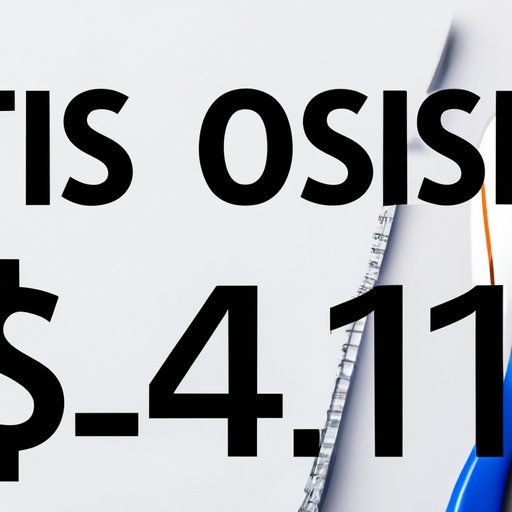Exploring 411: The Ultimate Guide to Directory Assistance
When you need information urgently, one of the quickest and most reliable sources is directory assistance, commonly referred to as 411. This service has been around for a long time and has evolved over the years, but the core purpose remains the same – to provide information about people, businesses, and government agencies. In this article, we will explore what 411 services are, how to use them effectively, the cost involved, alternative options, the benefits for businesses, what to expect in the future, and much more.
How to Use 411 Services to Get the Information You Need
Using a 411 service is easy once you know how. Here’s a step-by-step guide:
- Dial 411 from a landline or cell phone.
- Listen to the prompts carefully and select the right category (i.e., residential, business, government).
- Provide the necessary information regarding the person, business, or organization you’re looking for (e.g., name, location, phone number).
- Wait for the search results – usually, the operator will provide names and phone numbers, and in some cases, postal addresses.
- Take note of the information provided and thank the operator.
The most important thing to remember when using 411 services is to be accurate and patient. Providing incorrect information could lead to wrong results, and rushing could cause you to miss important details.
When using 411 services, you can also make the most out of the service by:
- Using their automated service, which is faster and less expensive than talking to an operator.
- Asking for more information – you never know when a phone number you have could be incorrect or outdated.
- Being courteous to the operator – directory assistance jobs can be tough, and a little kindness can go a long way.
Finally, it’s worth noting that using 411 services can sometimes lead to mistakes, especially when searching for common names or similar spellings. Always double-check the information provided to avoid confusion and miscommunication.
411: The History and Evolution of Directory Assistance
The first-ever 411 directory assistance service was launched in the United States in the 1930s by the Bell System, a group of telephone companies. At the time, operators would manually look up numbers in a printed directory and read them to callers. This process was costly and inefficient, but it marked the beginning of a service that would change the way we look for information.
Over time, directory assistance services have evolved to become more streamlined and automated. Various companies now offer the service and have added features like online directories, multi-lingual support, and caller ID services among others. The industry has also seen significant competition from other sources of information like search engines and social media platforms, but directory assistance remains a vital resource for people seeking information on-the-go.

The Cost of 411 Services and How to Avoid Overpaying
While the convenience of 411 services is unquestionable, the cost involved can be prohibitive for some consumers. Directory assistance services are typically billed per call, and the charges vary depending on the provider and location. Charges can add up quickly when using the service repeatedly, making it an expensive option over time.
To avoid overpaying for 411 services, consider the following tips:
- Use free directory assistance services – some providers offer a free service, while others offer a reduced rate for a limited number of calls.
- Switch to an online directory – online directories like Google and Bing offer a treasure trove of information for free with little or no cost.
- Consider switching to a package – some phone and network providers offer bundled services that include directory assistance, making it more affordable for frequent users.
A Guide to 411 Services and Alternatives
While 411 services have been around for a long time, they are not the only option for getting information. Here’s a rundown of some of the alternatives:
- Online Directories – Search engines like Google and Bing, social media platforms like Facebook, and specialized online directories like Yelp offer a vast collection of information for free.
- Mobile Apps – Mobile apps like Truecaller, Whitepages, and CallerSmart use crowdsourcing and big data to provide relevant information on phone numbers and people for free or at a low cost.
- Phonebooks – Residential and business phone books, while becoming less common, remain a useful and free resource for finding phone numbers.
- Specialized Services – For specialized information like weather forecasts, sports scores, or movie times, services that specialize in providing such information are available for free or at a low cost.
When choosing an alternative to 411 services, consider the reliability and cost implications. While some alternatives might be free, they may not provide the level of accuracy or speed required for urgent information.
411 for Business: The Benefits of Using Directory Assistance for Companies
Directory assistance services are not just useful for individuals; businesses can also benefit from it in various ways. Here are some of the benefits:
- Improved Customer Service – Having accurate and up-to-date phone numbers for customers helps businesses to serve clients better and improve customer satisfaction.
- Increased Productivity – A directory assistance service can help businesses find contact information quickly, freeing up employees to focus on other tasks.
- Cost-Savings – For businesses with a high volume of calls, the cost of 411 services can be offset by the amount of time and money saved on manually looking up information.
Businesses can maximize the use of directory assistance services by:
- Keeping information up-to-date – regularly updating their contact lists to avoid misinformation and confusion.
- Training employees to use the service – Ensuring employees are knowledgeable in using the service could lead to more effective use.
- Choosing the right provider – selecting a provider that offers a combination of reliability and cost-effectiveness could lead to significant cost savings and improved productivity.
The Future of 411: What to Expect and How to Prepare
The directory assistance industry has seen significant technological advancements in recent years. The shift to digital platforms and the use of artificial intelligence and machine learning in providing information has changed the sector drastically.
In the future, we can expect even more innovation that will change the industry, so it’s essential to know how to prepare. Here are some tips:
- Stay up-to-date – Technology is constantly evolving, and staying informed on the latest developments in the industry can help you make better-informed decisions about the services you use.
- Be open to change – Innovation is essential for progress, and being open to new services and ways of doing things can be beneficial in the long run.
- Consider alternative options – The rise of technology means there will always be new and better alternatives to traditional 411 services, and being open to them could lead to cost savings and better service.
Conclusion
In conclusion, 411 services offer a convenient and reliable way of obtaining information instantly. While the cost of using the service can be high, there are alternative options for those on a budget. For businesses, directory assistance is an excellent tool for improving customer service, increasing productivity, and reducing costs. As the industry continues to evolve, it’s essential to stay informed, be open to change, and consider alternative options to make the most of 411 services.
